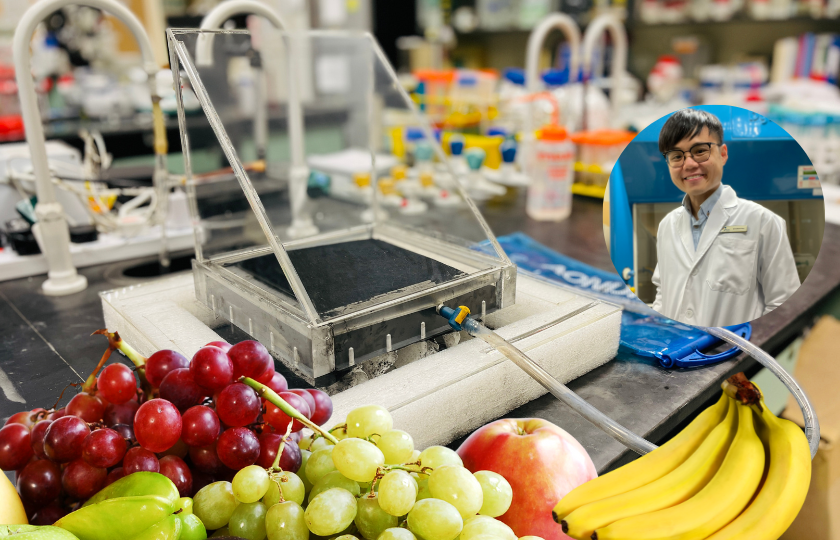In Singapore, a scientist from Nanyang Technological University has developed a water purification system made from fruit waste.
Assistant professor Edison Ang used coconut husks, orange peels, and banana peels to create MXenes – an electrical-conducting compound with properties similar to graphene, a common material used to filter water.
In an interview with Viable Earth, Ang shared that Nobel Prize in Physics winners Andre Geim and Konstantin Novoselov inspired him to develop an organic version of their two-dimensional material graphene by upcycling organic wastes.
Compared to graphene (made from graphite), MXenes provide better light-to-heat conversion properties, have outstanding electrical conductivity, are a hundred times stronger than steel, and are extremely lightweight.
“Our synthesis process is three times cheaper than commercial methods because the source that we use (fruit waste) is free of charge,” said Ang.
A solar still device uses a solar absorber like Graphene or MXene, which converts sunlight to heat, to evaporate water and collect the clean, drinkable water in a water bag.
Traditionally, MXene can be made from graphite, but mining a natural resource like graphite is not sustainable. This obstacle inspired Ang to investigate organic waste as an alternative to developing the purifier.
“This upcycling technology not only reduces waste pollution, but it also reduces natural resource mining and lowers the cost of material production because waste is free,” said Ang.
Some of the advantages of using his solar stills include
- Portability.
- As long as there is sunlight, dirty water can be purified anywhere.
- It does not require electricity to work.
For Ang, the greatest challenge during development was finding suitable waste materials to construct the filtration system.
He also shared that there is no industry interest in large-scale distillation due to the technology not being able to run at night due to lack of solar power, but if investors are interested in his innovation, Ang said he’s keen to discuss it with them.
“What people see as waste, we see as a source of wealth,” he concluded. “Be part of the solution, not part of the pollution.”



